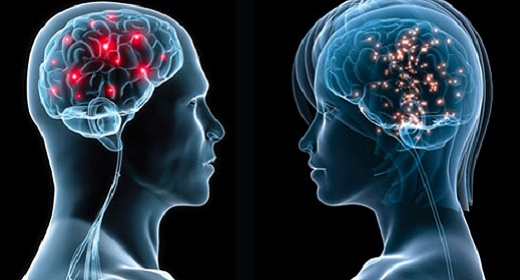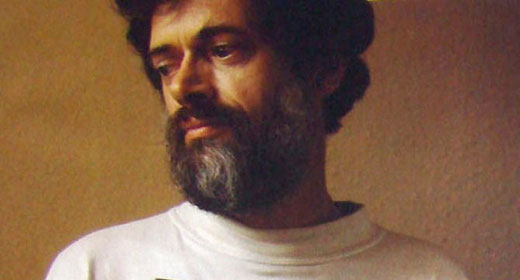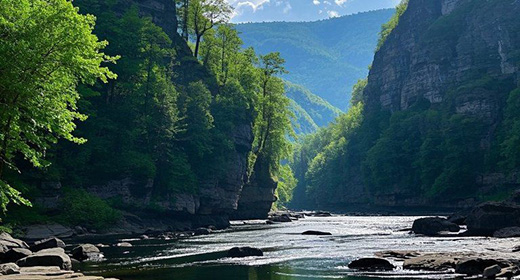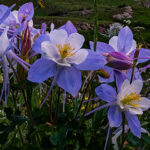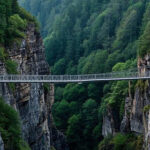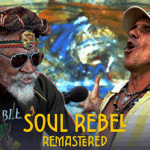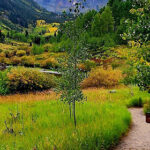Donna Quesada: Well, Kiri Westby, it is just a pleasure to have you here with us. On a personal note, I’ve been enjoying your book so much.
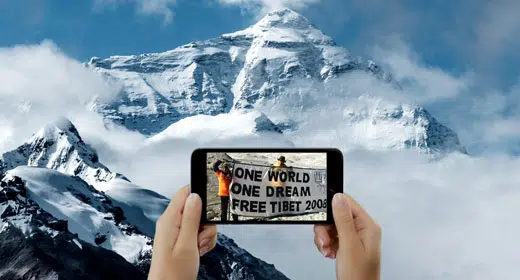
It is riveting and besides the story, I just want to say out loud, how beautifully written it is. Every page, every paragraph, has been a delight. And I wouldn’t be surprised if your story becomes a movie. It’s that captivating. And so, welcome… a hearty welcome.
Kiri Westby: Well, thank you so much for inviting me to chat with you… I’m delighted to be here.
DONNA: And for those who don’t know your story, I won’t give give it away because I want them to buy your book Fortune Favors the Brave, but just a short background… and please jump in if I get anything wrong… You were raised in a Buddhist community in Colorado since you were very young. You worked in human rights beginning as young as 22 years old. Wow! And by the time you were 29, you were aware arrested by the Chinese government for advocating for Tibetans, and for speaking up against the human rights abuses that were going on there.
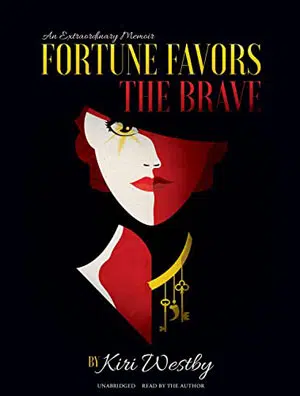 KIRI: Yeah. Good summary.
KIRI: Yeah. Good summary.
DONNA: Then you were held captive. And that begins the story that became your book. And I know that along the way, as we spend this hour together, bits and pieces of your story will come out. But I would like to actually start… because this is an online source devoted to questions about awakening, and we love spiritual topics and topics that support our own evolution as human beings…. Given your circumstances, and having seen humanity at its worst, what is awakening to you and what would an awakened world even look like?
KIRI: What is awakening to me? Well I guess, first of all, I just want to start by saying, my premise, or my understanding of spirituality does come out of a Tibetan Buddhist upbringing. So, my answer is going to be infused with what the Buddha taught. So in that sense, awakening, you know… I hate to be the bearer of bad news, or shit in everyone’s Cheerios… but awakening to me, is looking at reality. It opening our eyes to everything that is occurring, especially the difficult, painful aspects of existence.
So, awakening is refusing to live in a place of delusion, in which we don’t see the suffering of others. It’s not comfortable… awakening. Awakening is sort of brave. It’s this intentional decision to look at what’s really happening right now… on a global scale… to all the living beings on this planet.
And when you when you look at it, it’s uncomfortable. So, I think sometimes in the west, awakening or enlightenment or mindfulness has been really packaged as like a joyful experience, or a way to experience lasting happiness or joy, and tends to try to package… polish out the painful parts of existence of life, right?
One of the things we know the Buddha taught… his very first teaching or what we call the First Noble Truth, is that life is suffering. And it had been his story, or the mythology around the Buddha is that he had been raised the prince and there had been a huge attempt by everyone in his world, parents and servants, and everyone, to prevent him from seeing or experiencing suffering. So much so, that the first time he saw somebody begging for food and recognizing that hunger was something that existed… that was enough for him to sort of cast off all of the comforts of the life that he was born into. And that he was going to actually wake up… awaken to the suffering that was happening for other people, outside of himself.
And then, you know, through experiencing that suffering, sitting with that discomfort, looking at what’s happening, we find a sense of happiness or release from the hole that the fear of that suffering has on us. So, awakening is to see that suffering occurs. And then, through the experience of seeing it and recognizing it and sitting with it… we actually release ourselves from the hold it’s had on us all along. So we are refusing to be deluded into a world of just light. We are willing and brave enough to hold love and light in one hand and hatred and darkness in the other, so awakening is this bravery. Bravery to look at what… what is, and it’s not comfortable and it’s not easy. So, that is what, to me, awakening is. It’s a very brave act… a willingness.
DONNA: So, if I’m… and underlining what you’re saying because you’re not trying to paint it as some place beautiful to get to. It’s on the other… it’s instead, being willing to look at what is and sit with what is and, accept what is, and be friendly with what is. Is that it?
KIRI: Yeah. And the idea that you get to someplace beautiful… So for example, in the west here, in my life in Boulder, Colorado, there’s kind of this underlying assumption, maybe you have it as well, that we’re going to live a long life to maybe 80 years old, 90 years old. 100 if we’re lucky, right? But every time somebody doesn’t live that long, and an accident occurs, or an illness occurs, and their life is cut short, we say “what a tragedy that they died at 52” or “they died at 60” when they could have had such a long life.
But if you’re in the Congo, Democratic Republic of the Congo, and the life expectancy is 53, and you live to 55… We say, basically, “what a miraculous life.” You’ve lived longer than most Congolese have ever lived. And even though they died at 55, they had 55 years, which is such a gift. And so, my point being that like it’s the expectation that we won’t suffer, that actually causes us the most suffering when it happens. And so, we think, well, if I just eat well and exercise and do all the right things, I’m not going to suffer.
But, the truth is, the experience of living is birth, old age, sickness and death. There’s like, no one’s getting out of this life alive. That’s the truth of it. That is the awakened reality that we live in. And so, if we allow suffering and pain… the painful side of existence in, then our perspective on suffering shifts. So, it is the attachment to non-suffering that actually causes us suffering. And so, if we sit with enough of the painful sides of life, and we realize this is it, this is it, life is good one day and the next day, it’s not so good. And then we can let go of this idea that we’re somehow going to get out of this unscathed and just relax into the experience, whether it’s a good one or a bad one. And in that relaxation is the freedom… that is the kind of enlightened mind, or the escape from what fear and suffering has on us.
DONNA: What I also love is the unwillingness to pit good and bad against each other. You know, it’s breaking down that dualistic distinction and saying it’s all part of life. And as soon as we stop trying to have the one and fight against the other, things kind of magically become easier. Not necessarily beautiful, you know, because what would that even mean? It’s relative. But, by letting go of the struggle to try to get to the beautiful and to the good… things just sort of magically unfold… of their own accord?
And it reminds me of that tension between self-acceptance and self-improvement… you know, in spiritual circles, I’m always thinking about, what is it that are we doing here? Are we just trying to get to this place of acceptance, or are we trying to improve ourselves? But it’s almost a false division, in a similar way. Because as soon as we sit, as you described, with what is and we become okay with what is, all of that struggle just sort of magically dissipates?
KIRI: Right, We no longer need the anti-wrinkle cream because we love our wrinkles or we no longer need, you know… we just sit with what is happening, rather than fighting against it. That’s sort of a pit example. But it’s true. Like, you know, where do we draw the line when we’re trying to prevent suffering and old age, and all of it is that we can battle against it very hard. But the truth is, it comes for us anyway. And so, letting go of the struggle, not pitting good and evil, good and bad against each other, but accepting what today brings, good or bad, and being able to find a sense of peace or joy or equanimity in that. That, for me, is the path. It’s not to prevent bad things from happening or to prevent negativity from entering into our mind space. It’s to invite it in and to sit with it, to make friends with it. And to say, I’m no longer afraid of you. And in that, there’s like real freedom.
DONNA: I’m no longer afraid of you… worth stopping on that. That’s so powerful. I’m no longer afraid. And that’s the… the Tibetan path is is known as kind of, the warrior path… is that correct? And you grew up learning that warrior spirit, which I imagine served you well, in your four days being held by the Chinese?
KIRI: Definitely, and in many other instances within war zones. In the 10 years that I sort of worked in that field, diligently, I think this idea that we’re going to just get up and face what arises today, even in the context of war, was part of my early training. Interestingly, the Tibetan Buddhist teacher who my parents followed, who created this first Buddhist community in Boulder, Chögyam Trungpa Rinpoche, was a refugee of war. And he had his country and his home stolen, taken from him by the Chinese government, and he had led a group of refugees over a treacherous escape through the Himalaya.
And so, the context in which I was raised and kind of trained by him, was that this world is painful, and suffering comes to your shores when you least expect it. And we have to be prepared for that. And that’s what we were prepared for as children… sort of trained for this warrior ship to take on what’s coming. But not so comfortable and not so easy, the suffering side of life.
Read and Watch Part II Here: Awaken Interviews Kiri Westby – Pt 2 – One World, One Dream, Free Tibet
Read and Watch Part III Here: Awaken Interviews Kiri Westby – Pt 3 – The Medicine Of Listening
Read and Watch Part IV Here: Awaken Interviews Kiri Westby Pt 4 – Waking Up To Something Bigger Than Ourselves
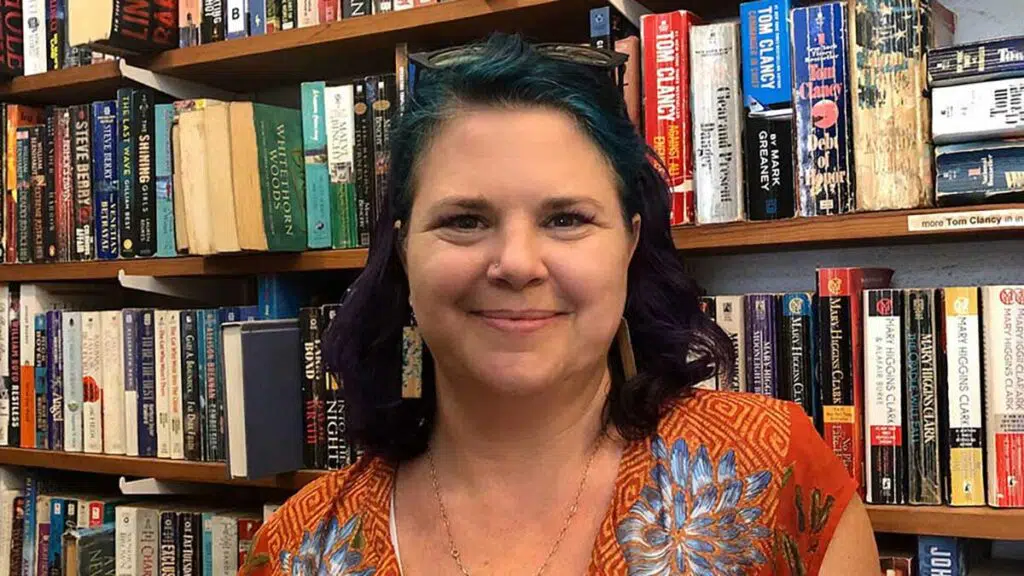
Kiri Westby: From inside an interrogation session with the Chinese Secret Police, a young American activist recounts her path into global human rights work — exploring critical lessons on privilege and compassion in the context of war and extreme suffering.
 When I was arrested by the Chinese military for launching a historic Tibetan Freedom protest, I knew every trial and lesson had been worth it — even if it meant facing a life in prison.
When I was arrested by the Chinese military for launching a historic Tibetan Freedom protest, I knew every trial and lesson had been worth it — even if it meant facing a life in prison.
After a childhood infused with esoteric Buddhist teachings, I was forged into a global activist through years of witnessing and collaborating in the dissent of women on the front lines of war. From villages in Nepal, to refugee camps in The Democratic Republic of Congo, to the streets of Bogota, Colombia, my initiation into human rights activism was raw and transformative. The bravery of those women bolstered me in my darkest hours of interrogation and torture by the Chinese Police, and it guides me now to share my true story—no matter the repercussions. This is not a tale the Chinese government wants told.
During my years working in war zones, I often wondered if I’d have the courage to stand up to tyranny, to lay my life on the line to confront undeniable persecution.
In 2007 — on the slopes of Mt. Everest — I found out.
Take a literary journey with me as I reveal the bumpy road I took to becoming my bravest self — learning to leverage a life of advantage, find a place for my own joy, and cultivate the courage needed to play a distinct role in history.
Buy it Here: Fortune Favors the Brave







